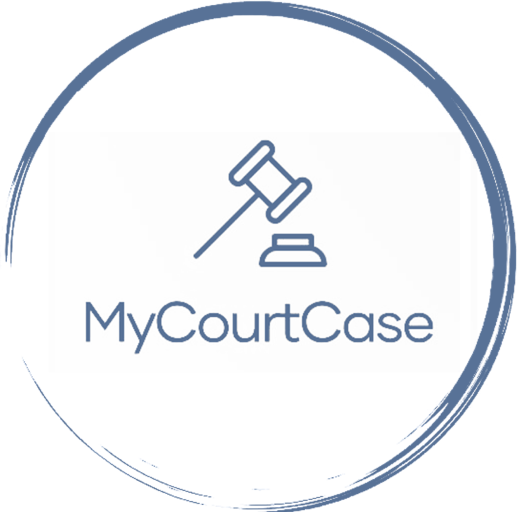Disclaimer
The information provided on this website is for general informational purposes only and is not intended to serve as legal advice. While we aim to provide useful insights, every legal situation is unique, and the laws surrounding personal injury cases can vary by jurisdiction. This content should not be considered a substitute for consulting with a qualified personal injury lawyer. We strongly recommend seeking professional legal advice to discuss your specific circumstances and to ensure your rights are fully protected.
When seeking legal advice regarding a personal injury lawsuit, providing your lawyer with detailed and accurate information is crucial to building a strong case. The following is a list of typical information your lawyer will request to evaluate your personal injury claim:
1. Accident or Incident Details
- Date, Time, and Location: The specifics of when and where the accident or injury occurred.
- Description of the Incident: A clear and concise explanation of what happened leading up to, during, and after the accident.
- Weather Conditions (if applicable): In the case of vehicle accidents or slips and falls, the weather at the time of the incident may be important.
- Witness Information: Names and contact details of any witnesses who saw the accident or were present when it occurred.
- Police or Incident Reports: If law enforcement or another authority was involved, a copy of the police or incident report will be necessary.
2. Injuries Sustained
- Medical Records: All medical documentation related to your injuries, including diagnosis, treatment plans, surgery records, prescriptions, and follow-up care.
- Photographic Evidence of Injuries: Photos of visible injuries, such as bruises, cuts, burns, or swelling, taken as soon as possible after the incident.
- Medical Bills and Expenses: Receipts and records of medical bills, hospital stays, physical therapy, prescription medications, and any other costs related to the treatment of your injuries.
- Ongoing Medical Care: Information on any future or ongoing medical care you are receiving or will need as a result of the injury.
3. Loss of Income or Earnings
- Employment Information: Details of your current employment, including your position, salary, and work schedule.
- Proof of Lost Wages: Pay stubs, tax returns, or any documentation that shows how much income you have lost due to time off work because of the injury.
- Documentation of Reduced Earning Capacity: If your injury prevents you from returning to your previous job or working at full capacity, your lawyer will need proof of this, such as a doctor’s note or employment records.
4. Insurance Information
- Your Insurance Policies: Copies of your health insurance, auto insurance (if the injury resulted from a vehicle accident), homeowners’ or renters’ insurance, and any other relevant policies.
- Insurance Correspondence: Any communication you’ve had with insurance companies regarding the incident, including claim submissions, denials, or settlement offers.
5. Proof of Property Damage
- Damage to Personal Property: If your vehicle, phone, clothing, or other personal property was damaged during the incident, provide documentation of the damage, such as repair estimates, receipts, and photographs.
- Vehicle Repair Estimates (if applicable): In the case of a car accident, estimates or receipts for vehicle repairs or replacement.
6. Evidence of Pain and Suffering
- Personal Journal or Diary: A record of your daily physical pain, emotional distress, and the impact of your injuries on your life can help demonstrate the non-economic damages you’ve suffered.
- Therapy or Counseling Records: If you have sought mental health treatment as a result of emotional trauma or psychological suffering caused by the injury, these records can support your claim for pain and suffering.
7. Prior Medical History
- Pre-existing Conditions: Information on any pre-existing medical conditions that could affect your case, including whether they were aggravated by the accident or injury.
- Previous Injuries: Documentation of any similar injuries you’ve had in the past, which may be relevant to your current case.
8. Expenses Related to Daily Life
- Home Care or Assistance: If your injuries have required you to hire home care, help with daily activities, or make modifications to your home, provide documentation of these costs.
- Transportation Costs: Any expenses incurred for traveling to and from medical appointments or physical therapy sessions.
9. Expert Opinions
- Medical Expert Reports: Your lawyer may request reports from medical professionals that provide an expert opinion on the extent of your injuries and the necessary treatments.
- Accident Reconstruction Experts: In complex cases, particularly vehicle accidents, expert analysis may be required to demonstrate fault or the cause of the injury.
10. Correspondence and Settlement Offers
- Communication with Other Parties: Any letters, emails, or other communications with the responsible party, their lawyer, or their insurance company.
- Previous Settlement Offers: If you have received any settlement offers before consulting with a lawyer, provide the full details and correspondence regarding those offers.
11. Photographic and Video Evidence
- Scene Photos: Photos or videos of the accident scene, dangerous conditions, or defective products that contributed to your injury.
- Surveillance Footage (if available): If the incident was caught on a surveillance camera, your lawyer will want to review this footage.
Providing your lawyer with this comprehensive information will help them build a strong case on your behalf and ensure that you receive the compensation you are entitled to for your injuries. The more detailed and organized your information, the better prepared your lawyer will be to advocate for your rights and pursue a fair settlement.
